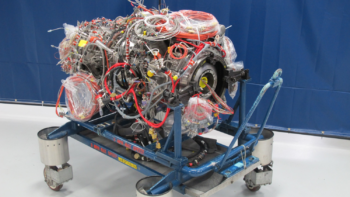WASHINGTON: At least three shipyards that do work for the US Navy have bought and used drydocks from China. This would seem to lower the stakes for Huntington-Ingalls Industries, currently searching for a Chinese drydock of its own with help from homestate Senator Thad Cochran, as reported yesterday in the Washington Post.
BAE Systems’ San Diego yard — which will receive its Chinese drydock later this year — and Vigor Industrial’s Portland yard — which got its $50 million Chinese dock in 2014 — do repair work for the US Navy. The Bath Iron Works yard in Maine which does build new warships got a Chinese drydock in 2001. The Ingalls yard in Pascagoula, which is currently shopping for one, also builds new warships, mostly notably LPD-17 San Antonio-class amphibious ships and DDG-51 Arleigh Burke destroyers.
Japan and South Korea also build drydocks, but it’s not clear whether these two US allies can compete with China on price.
“I would point out that China is one of our largest trading partners,” one Hill staffer says. “I don’t see how buying a drydock — not exactly sensitive technology — from them is any different than buying a bazillion iPhones and TVs.”
In fact, some Chinese products are used in Defense Department systems, including computer chips that reportedly have backdoors installed for easy hacking. By contrast, drydocks are hardly cutting-edge technology and simply support the physical hull of a ship, rather than connecting to its electronics.
Yet fears of Chinese competition — both economic and military — are so intense that only one of our usual congressional sources would comment. The Navy wouldn’t comment either. Huntington-Ingalls spokeswoman Beci Brenton had only this to say: “On the record I can tell you: As many other shipyards in America, including those that also build Navy ships, have done in the last decade when needing to replace a large dry dock, Ingalls Shipbuilding is looking across the world market for a solution. Since no decision has been made, it is premature to discuss this effort further.”
Sullivan: Defense industry ‘still underestimating’ global need for munitions
National Security Advisor Jake Sullivan said that there are “no plans” for another Ukraine supplemental at this point.

























